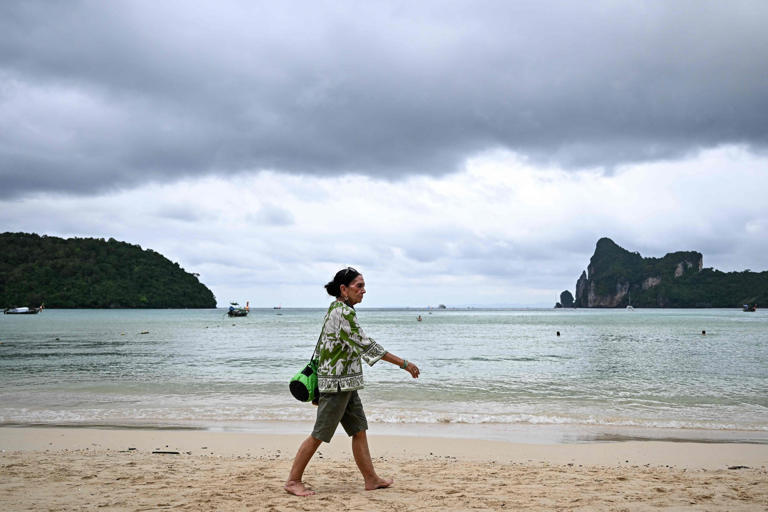Elisabeth Zana thought her life was over after her daughter died in the 2004 tsunami. Instead she began helping a Thai school. She still is
After the deadliest tsunami in history claimed her only daughter, Elisabeth Zana considered taking her own life – until a school in Thailand reignited her sense of purpose.
Against the backdrop of a picture-perfect beach in the Phi Phi Islands, the 79-year-old Frenchwoman thinks back to the “unforgettable chaos” she saw at the same spot in February 2005.
Do you have questions about the biggest topics and trends from around the world? Get the answers with SCMP Knowledge, our new platform of curated content with explainers, FAQs, analyses and infographics brought to you by our award-winning team.
On December 26, 2004, a magnitude 9.1 earthquake under the Indian Ocean triggered a huge tsunami that killed more than 225,000 people in a dozen countries worldwide.
In Thailand, more than 5,000 people were killed by the Boxing Day disaster according to the official toll – around half of them foreign tourists holidaying on its southern beaches – and another 3,000 left missing.
Zana’s daughter Natacha, then 35, was on Koh Phi Phi when a wall of water 10 metres (33ft) high struck the island.
The search for her body took nine months, during which Zana and her husband felt their lives had gone into “total disarray”.
“For us, who have no other children … our lives were over. The temptation to commit suicide was very strong.”
A run-down memorial is all that remains today on the island, itself a symbol of mass tourism, where new concrete resorts conceal the tsunami’s urban scars.
Locals do not want to talk about the trauma the disaster inflicted, Zana says, and some families of missing foreigners avoid the place altogether.
In 2005, she set up NAT Association to help children affected by the tsunami, donating equipment and financing infrastructure to help save Bankuankojan public school on Krabi province’s mainland, which was threatened with closure.
The former dance teacher, who speaks no Thai, also set up a sponsorship programme for the most disadvantaged of its 180 students, aged between three and 11.
Her beloved daughter’s legacy lives on through Bankuankojan’s alternative name, “Natacha School”, and the French flags and petanque – a game of French origin – courts in the playground.
To commemorate the 20th anniversary of the tsunami, the students perform Thai music and nora, a traditional dance from the kingdom’s south. Music classes are rare in Thailand’s public education system, where rural schools suffer most from inequality and a lack of resources.


